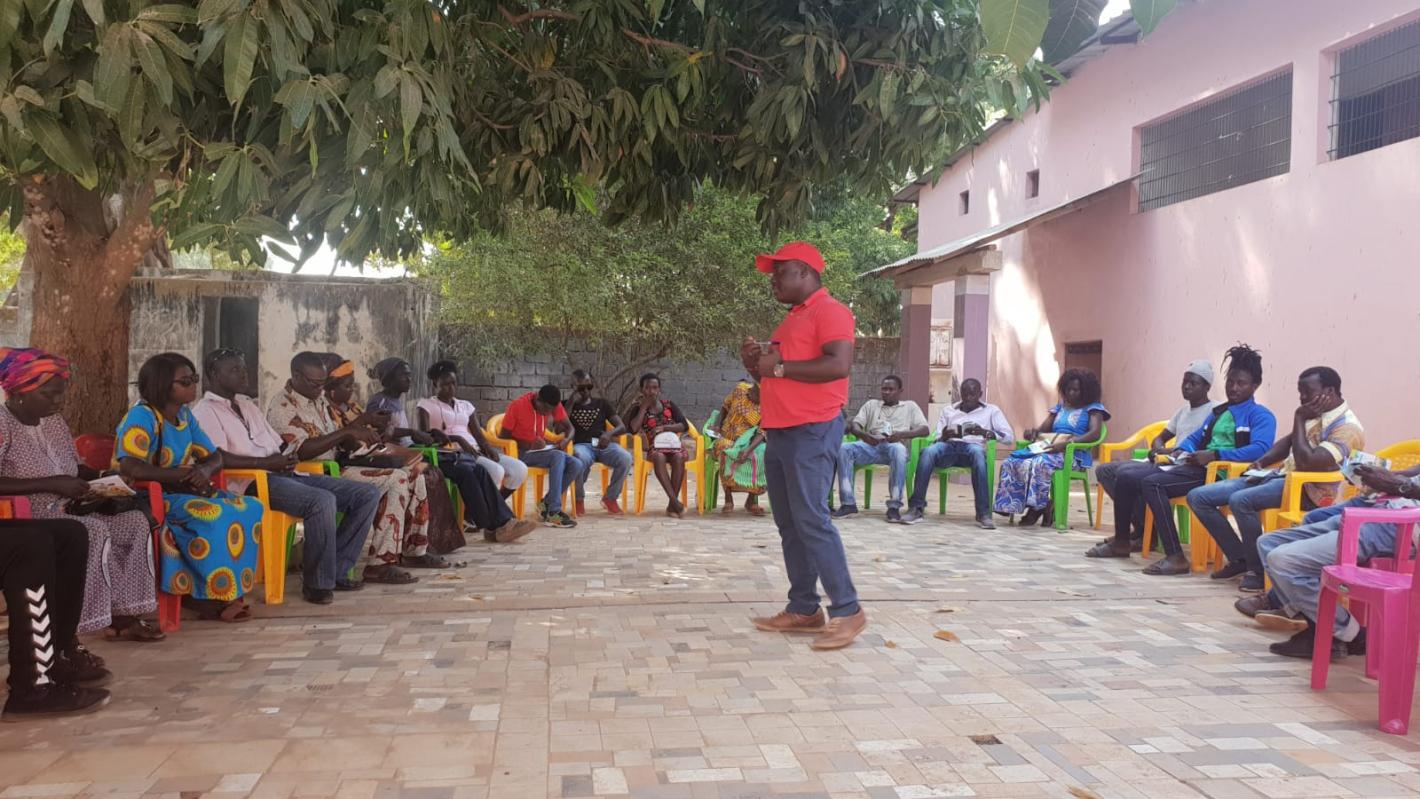Between 17 and 26 May, three teams travelled to 15 different villages in remote areas including on the islands of Orango, Galinhas, Bolama, Bubaque and Soga, as well as Xitole, Bambadinca Contubuel, Ganado and Cosse in the East and in the northwestern sectors of Baro, S. Vicente, Calequisse, Ponta Pedra and Bachil.
A total of 750 people attended the meeting and over 1500 attended the film screenings focusing on UNIOGBIS mandate and transition, constitutional framework, reforms and electoral process, human rights and promotion of citizenship.
At the meetings participants call for more state decentralization and an effective justice system. In Calequisse, the hometown of President Vaz, people complain that although they are a sector (smallest administrative circumscription containing several villages) they do not have any decentralized services. “For every little thing, hospital, civil registry or courts we need to go to Canchungo or S. Domingos”, said one young business man.
Speaking of active citizenship, Mamadou, 21 years old, said that the youth in Calequisse is already very active. “We already work a lot for the development of our village, our sector, however we don’t have power to administer ourselves and the MPs we elect we only see them during election period”.
This is a complaint that is echoed in all regions of the country. Also, participants repeat the motto the “the problems of Guinea-Bissau need to be solved by Bissau-Guineans”. Nonetheless, “tired and frustrated” by the relentless political instability they call on the international community to find new ways to help the country get out of the crisis, other than dialogue, such as imbedding international civil servants in key state institutions and using sanction measures against those who prevent stability.
In the northwest of the country, on the coast, the population of a small fishermen village expressed concern for drug trafficking which they perceive as a growing activity.
Corruption and impunity are some of the major concerns of the people along with the difficult economic situation aggravated this year by the decline in the price of cashew-nut, the main export of the country.
This community outreach programme will continue end in June in the capital, Bissau, with conferences in the universities and high schools.






